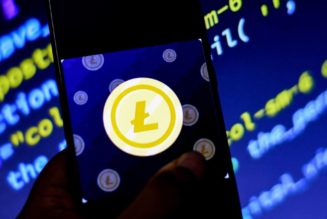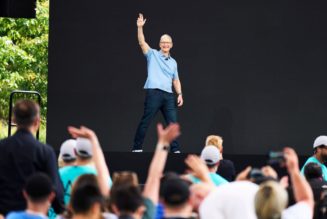
Live in Silicon Valley long enough and someone will tell you that the party is over. As far as I can tell, this phenomenon dates back to at least 1874. As Peter Hartlaub recounted last year in the San Francisco Chronicle, upon the occasion of a writer for the Washington Post announcing that San Francisco had broken her heart, that was the first time a citizen had lamented the region’s vanished glory days. (The reason for the citizen’s heartbreak: the construction of the Palace Hotel, which he viewed as too tall and a blight on the skyline at 120 feet.)
San Francisco and its surrounding tech hub have continued to die ever since, most spectacularly during the dot-com crash, but certainly well before then, too. (Here, via Andreessen Horowitz partner David Ulevitch, is the founder of onetime search giant AltaVista announcing that Silicon Valley was dead in 1993. “The cost of housing and office space has spiraled out of control, Paul Flaherty wrote. In 1993.)
But then again, San Francisco really has been in a state of crisis for the past decade, thanks to the regional refusal to build adequate housing. And now it has another, global crisis to worry about: the COVID-19 pandemic, which is upending plans and expectations everywhere — but particularly for people who need only a laptop and Wi-Fi connection to be productive, and can therefore easily move away.
This has been encouraged by the tech companies themselves. First Google told employees they could continue to work from home until June. Then Facebook told employees they could work from home through the end of 2020. And then finally this week Twitter said what everyone had been thinking anyway, and just told employees they could work from home indefinitely, portending the glorious day in the future when the company will be forced to acknowledge it has hundreds of employees on the payroll who haven’t showed up for years. (I should note that I made this joke on Twitter and that the company’s payroll manager vowed not to let this happen.)
But as a result of the past week’s WFH fervor, the more opportunistic residents of Silicon Valley are beginning to think about the arbitrage opportunities. It is not a particularly complicated scheme to work out. You take your mid-six-figure Bay Area salary and your laptop. You decamp with your family to the countryside, or the mountains, or the beach. Maybe you simply ride out the hard times there, maybe you stay forever. Already in my weekend and off-hand Zoom calls, friends are plotting cross-country moves — maybe just for a few months, maybe longer. Multiply their experiences by several thousand, and this time Silicon Valley really might find itself changed forever.
In Bloomberg, Sarah Frier talks to some of the folks considering the jump.
Sachin Dhar thought he and his fiancée had a great deal paying $2,650 per month for a one-bedroom rental in South San Francisco, a short commute from Facebook Inc.’s offices in Menlo Park, where she works. But when the social networking company announced that most employees would be working from home until the end of the year, their calculation changed. “It makes no sense paying Bay Area rent if we can earn our salary living elsewhere,” says Dhar, 25, who already works remotely for a New York advertising startup. They’re considering moving to Hawaii—or, to really save money, somewhere in the rural U.S.
Dylan Hecklau is thinking along the same lines. His ad-tech employer, Jelli Inc., was dubious about letting people work from home before the pandemic hit. Now that employees have proven productive, its attitude has changed. Hecklau, 32, is planning to take the money he would have spent on a Lake Tahoe vacation home and make a down payment on a permanent home in Sacramento, abandoning his $3,200-a-month rental in San Francisco. “With nothing keeping me here, I can’t justify paying the rent prices,” he says.
Of course, it’s not just the jobs that lure people to San Francisco: it’s the restaurants, the nightlife, the sports teams, the other cultural amenities. With those all shuttered for the foreseeable future, the city loses much of its appeal.
If tech companies were keen to keep workers close by, they might incentivize them by radically re-thinking offices in a way that made them more appealing. Some have speculated that COVID-19, which spreads easily among people in close contact with one another for extended periods, might mean the end of the open-plan office.
But reading early ideas about how to bring employees back to work, the pandemic seems to herald the end of much more. Chip Cutter and Suzanne Vranica examined plans for re-opening offices around the world in anticipation of work restrictions easing, and what they describe sound less like offices and more like torture chambers for white-collar workers. Here they are in the Wall Street Journal:
Elevators may only take one person at a time. Desks, once tightly packed in open floor plans, will be spread apart, with some covered by plastic shields and chairs atop disposable pads to catch germs. The beer taps, snack containers, coffee bars and elaborate gyms and showers that once set high-dollar, white-collar environments apart will likely remain closed to prevent the spread of coronavirus. Many changes won’t go away until the virus does. […]
McCann’s New York office will close its bar and cafeteria for the rest of 2020. Instead, the company has ordered dozens of microwaves and refrigerators so people can bring in their lunch. The appliances will go in enlarged kitchen areas being erected on every floor. Nobody will need an elevator to access food, and everyone will be expected to use the cleaning supplies stationed nearby to wipe down communal buttons and door handles.
Of course, some workers will need to stick close to headquarters to attend to servers and the other physical infrastructure of running large internet companies. But given the size of the workforce at tech giants like Apple, Google, and Facebook, these teams amount to skeleton crews. Facebook has historically paid new hires a $10,000 bonus to live near the office. But who wants to go into an office like the ones described above?
With more tech workers preparing to head for the hills, tech giants could have much to reconsider: preserving productivity, creativity, office culture, diversity, and inclusion; taking a more expansive view of recruiting; and, inevitably, lowering salaries for those living outside the blast radius of the Bay Area housing crisis. How many people will really flee the Bay Area in the coming year? Will Silicon Valley finally be wounded in the manner that so many skeptics have long predicted?
At this early stage of the pandemic, the answer is still unknowable. But as of this week, it is no longer unthinkable.
The Ratio
Today in news that could affect public perception of the big tech platforms.
⬇️ An Amazon warehouse worker at a facility in Bethpage, NY has died from COVID-19, the sixth known case of an employee to die fromthe pandemic. (Annie Palmer / CNBC)
⬇️ Amazon, Target, and Kroger are all rescinding a $2 raise given to workers putting their lives at risk during the COVID-19 pandemic. (Anders Melin and Ben Steverman / Bloomberg)
Virus tracker
Total cases in the US: More than 1,397,700
Total deaths in the US: At least 84,100
Reported cases in California: 73,218
Total test results (positive and negative) in California: 1,065,592
Reported cases in New York: 345,828
Total test results (positive and negative) in New York: 1,258,907
Reported cases in New Jersey: 141,560
Total test results (positive and negative) in New Jersey: 441,450
Reported cases in Illinois: 84,874
Total test results (positive and negative) in Illinois: 489,359
Data from The New York Times. Test data from The COVID Tracking Project.
Governing
⭐ TikTok hasn’t made good on its promise to the Federal Trade Commission to protect the privacy of children on the service, according to a coalition of 20 children’s and consumer groups. As part of the agreement, the company said it would delete personal information of children under the age of 13. The complaint alleges the company hasn’t done that. Here’s Natasha Singer at The New York Times:
The groups also identified problems with age verification for younger users. Last year, the app set up a service for children under 13, TikTok for Younger Users, which prevents them from posting videos and does not collect their personal data. But the complaint said a child who initially registered for a TikTok account for younger users could instantly delete it and sign up for an over-13 account on the same mobile device simply by using a fake birth date.
The Senate voted to reauthorize the Freedom Act, bringing the surveillance bill closer to becoming law. Lawmakers also shot down a proposal that would have restricted warrantless collection of internet search and web browsing data. (Adi Robertson / The Verge)
France is moving forward with its controversial tech tax after offering to delay it earlier this year. The law requires tech companies to pay a 3 percent tax on total annual revenue generated by providing services to French users. The country’s finance minister noted that tech companies are doing better than most during the coronavirus crisis. (Leigh Thomas / Reuters)
Amazon is suing two companies for “widespread tech support fraud,” alleging that they tricked new users of Echo speakers into paying for purported technical support. The scheme was designed to convince people they had encountered frustrating technical glitches. (Todd Bishop / GeekWire)
Amazon is quietly fighting a new facial recognition law in Portland, Oregon. The proposed legislation would outright ban the use of the technology by government and private entities, and threaten a range of businesses that sell and use the technology in the city. (Kate Kaye / OneZero)
A sketchy company headquartered in Malaysia has been selling face masks at wildly inflated prices through ads on Facebook. The social platform has banned mask ads, but the rules have been hard to enforce. (Craig Silverman / BuzzFeed)
Researchers at Stanford released a study saying that coronavirus might only be as deadly as the seasonal flu. The study was widely criticized by academics, but still gained traction among right wing groups protesting social distancing measures. (Aleszu Bajak and Jeff Howe / The New York Times)
American conspiracy theories like QAnon are entering a dangerous new phase: one that is essentially religious in nature. Here’s where QAnon came from, and why it’s probably not going away anytime soon. Part of a big new package from the Atlantic on the rise of conspiracy theories in the United States. (Adrienne LaFrance / The Atlantic)
A new piece of misinformation about COVID-19 is spreading: that fears of the pandemic are overblown because in 1969, the Woodstock music festival was held during a flu pandemic. (Ryan Broderick / BuzzFeed)
Cynthia Hogan, Apple’s vice president for public policy, is leaving the company after being tapped by the Biden campaign for the vice presidential selection committee. (Margaret Harding McGill / Axios)
The US Postal Service is quietly reviewing its package delivery contracts weeks before a Republican donor becomes postmaster general. Among other things, the Postal Service is expected to reexamine what it charges Amazon to carry packages. (Jacob Bogage and Josh Dawsey / The Washington Post)
Industry
⭐Facebook is teaming up with some of the world’s largest telecom carriers including China Mobile Ltd. to build a giant sub-sea cable to help bring more reliable internet across Africa. The project will cost just under $1 billion. Angelina Rascouet, Loni Prinsloo, and Thomas Seal at Bloomberg have the story:
Facebook has long tried to lead the race to improve connectivity in Africa in a bid to take advantage of a young population, greater connectivity and the increasing availability and affordability of smartphones. The U.S. social-media giant attempted to launch a satellite in 2016 to beam signal around the continent, but the SpaceX rocket carrying the technology blew up on the launchpad.
Google announced its own sub-sea cable connecting Europe to Africa last year, using a route down the west coast.
Fans are using Zoom to connect with people they’ve never met before. Fans have been hosting listening parties, watch parties, crafting groups, book clubs, and virtual concerts online using the videoconferencing app. (Aliya Chaudhry / The Verge)
With the influencer economy down, creators are turning to OnlyFans as a way to earn money during the pandemic. What does that mean for professional online sex workers? (Claire Downs / Elle)
An ex-Google employee and QAnon fan helped make “Plandemic” go viral. He laid out his plan to make Judy Mikovits famous in an unlisted YouTube video from last month. He also has deep ties to the anti-vaxx world. (Anna Merlan / Vice)
Animal Crossing is home to some of 2020’s best late-night talk shows. It has created what Stephen Colbert, Jimmy Kimmel, and Jimmy Fallon cannot: a live set, complete with musical guests, comedians, and personalities, gathered in one room. (Megan Farokhmanesh / The Verge)
Last week, Alphabet abandoned plans for an experimental smart city in Toronto. The project echoes a failed sci-fi utopia in Minnesota, a project conceived by an oceanographer and comic-strip artist. (Adi Robertson / The Verge)
Things to do
Stuff to occupy you online during the quarantine.
Watch HBO with friends using Scener, which gives subscribers the ability to watch TV together. The online video chatting tool already has a deal with Netflix to allow people to watch movies and shows with friends.
Listen to the first episode of the Last Archive, a new podcast from brilliant historian and New Yorker writer Jill Lepore. The series’ goal is to answer the question: who killed truth?
Listen to the trailer for Boom/Bust: HQ Trivia, a new podcast from The Ringer about the rise and fall of the once-hot quiz show. The first episode drops soon.
Download Grand Theft Auto V for free on the Epic Games store. The store buckled under the weight of downloads on Thursday, but the game is free through May 21st.
Watch the Shakespeare in the Park production of Much Ado About Nothing. The New York Times gave it a rave last year, and it can now be seen for free on PBS.org.
Those good tweets
them: do you take constructive criticism
me, already crying: sure what’s up— jim zone (warning jim zone) (@urvillageidiot) December 4, 2017
And finally…
In the New Yorker, Jeremy Beiler imagines Amazon CEO Jeff Bezos writing a letter titled “Now is the time to cherish the little things.”
At Amazon, we have a saying. It goes, “More more more more more more more more more more more gimme gimme gimme gimme gimme more more more more more more more more more more more more more more more more come in here and close the door Seth I want it done today Seth more more more more more more more more more more more more more more more.”
My advice to you: even though you’re stuck at home, try to find more. More to cherish, more to learn, more to discover. Take up a new hobby. Fly your drone into a cloud and see if you can find it again. Sue someone who doesn’t have the resources to engage. Sink a yacht just to watch how the water swirls. Tell your V.P. of distribution to kill a cow and see if he’ll actually do it. If you’re still going a little stir-crazy, why not stay in a different one of your houses every night of the week? We’ve all got to get creative here.
Talk to us
Send us tips, comments, questions, and your San Francisco escape plan: casey@theverge.com and zoe@theverge.com.








